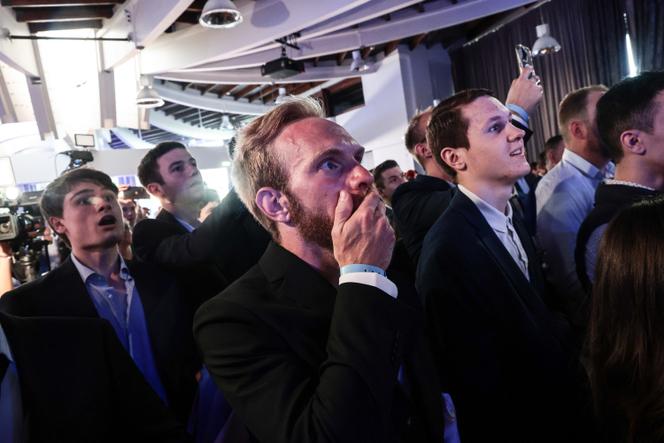


The worst must be avoided in three weeks, not three years. Twenty days to prevent the far right from coming to power in France, through an election for the first time, when it has just triumphed in the European elections. Three weeks before the first round of parliamentary elections, which Emmanuel Macron resorted to on Sunday evening by slipping through the emergency exit of presidents of the Fifth Republic who have their backs to the wall: The dissolution of the Assemblée Nationale.
Shocked by this institutional coup de théâtre, as legitimate as it was unexpected, most political commentators used the same wording: A gamble, a poker bluff. The problem is that we are the stakes. And on June 30 and July 7, nothing less than the future of our democracy will be decided, in a hurry, as will the face we wish to present to our European allies and partners, at a time when our continent is once again struck by war and our world is in a state of climatic catastrophe.
The problem, above all, is that the player has lost his lead. That happened well before the humiliation of the European election results, in which Macron's Renaissance party got less than half as many votes as the far-right Rassemblement National (RN), which provided the bulk of an unprecedented number of far-right votes, almost 40% in total. The campaign merely concentrated this mixture of arrogance and clumsiness, which disgusts many voters ready to turn to a protest vote. The problem is also that the initial explanations filtering out of the Elysée to justify this dissolution, a mixture of bluff and self-persuasion, are so similar to recent communication stunts – debates or speeches overshadowing the Renaissance lead candidate, using the war in Ukraine or the anniversary of the D-Day landings – which all proved counter-productive.
Here, more than ever, Macron is confronted with the contradictory goal he set himself: to reduce the far-right vote without having pursued a policy capable of eradicating its roots, which are much deeper than the rejection of immigration. And now, with the return of parliamentary elections, his camp is exposed to the regret of the mistake it made two years ago, when the presidential coalition did not see fit to extend to the parliamentary elections the traditional "Republican front" that allowed Macron to win two presidential elections against the fa right thanks to support from other opponents.
This major betrayal cost him a number of seats, the ones he needed to win an absolute majority and avoid the risk of dissolution. How can he restore a principle that has been betrayed? This will be one of the key issues of the next few days for all those political groups who, in good faith, wish to prevent the far-right Le Pen clan from controlling the office of prime minister.
Macron is not the only one to blame for the combination of failures that ultimately stalled his second term. The rise of the far right started long before the seven years during which the young prodigy went from beneficiary to victim of the prevailing protest vote. The outcome of the game also depends on those around the table.
For the right, the low score of the list led by conservative François Xavier-Bellamy once again sanctions the senseless scuttling it has inflicted on itself for years, while elsewhere in Europe, conservative parties have often made more progress than the far right. On the left, despite the – for once, encouraging – score of the Socialist list led by Raphaël Glucksmann, the electorate is not tilting in its favor. Yet this is where the answers most likely to bring about a lasting decline in the far-right vote could come from: The quest for a fair climate transition, the dismantling of urban ghettos, the defense of public services and the fight against the excesses of consumer society. Unity will be essential to impose these issues, but it seems out of reach as long as Jean-Luc Mélenchon and his radical left La France Insoumise party cling on to sectarian postures. Can the shock of dissolution get things moving? It's at the price of these efforts that others than the RN will be able to win the risky gamble of a desperate president.
Translation of an original article published in French on lemonde.fr; the publisher may only be liable for the French version.
